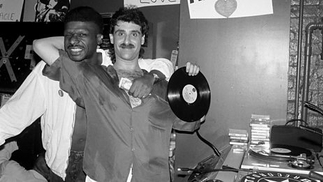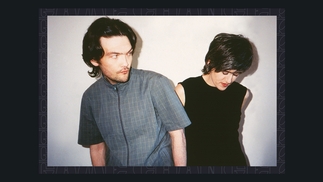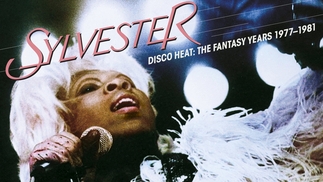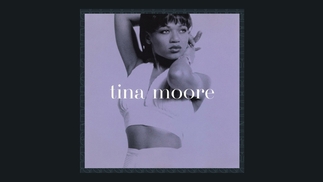SQUAREPUSHER ‘SQUAREPUSHER THEME’: GAME CHANGER
One of the most innovative, groundbreaking producers in electronic music, Squarepusher pushed the jazz/jungle fusion envelope into outer space in the mid-'90s with his 'Squarepusher Theme'. But how well did it go down in the drum & bass scene?
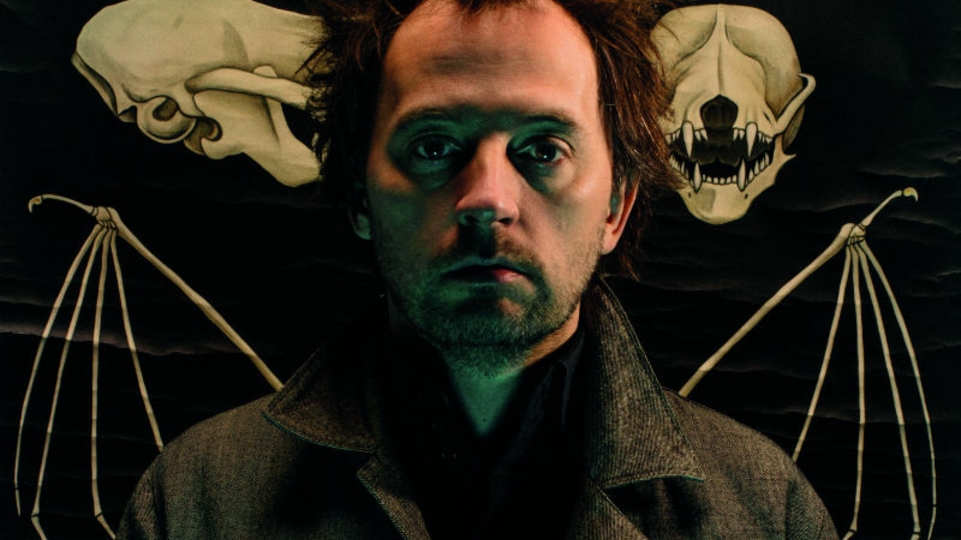
It could have been his junglist garage pastiche ‘My Red Hot Car’. Or it could have been the burning 303 d&b of ‘Vic Acid’. In Tom Jenkinson aka Squarepusher’s dizzying discography, there’s more than a fair share of game changers. But ‘Squarepusher Theme’, from his debut album ‘Feed Me Weird Things’ on Aphex Twin’s Rephlex label, takes the cake.
‘Theme’ represents the period when producers outside of the drum & bass scene were starting to make their own freaky interpretations of it. The best came from artists more often associated with leftfield electronics. Luke Vibert had his Plug alias; there were experimental outliers Spring Heel Jack and James Hardway. But Squarepusher was out on his own, doing something that really hadn’t been done before.
‘Theme’ is robotic jazz-funk. Roy Ayers beamed into infinity. Borg boogie. Its gorgeous sunlit chords and lubricated, sinuous bass all sit within micro-snipped drum breaks, millions of tiny shards of breakage that power it along at breakneck pace. When it appeared, ‘Theme’ was championed by Coldcut, Mixmaster Morris and other DJs operating on the fringes of dance.
Sounding like the kind of cut ‘n’ paste exercise that would give DJ Shadow a headache, spliced from hundreds of rare groove classics, it’s all the more surprising that the only samples in it are the beats.
“There’s no samples of other people’s records in terms of the harmonic or melodic material, it’s just the drum breaks,” Tom tells us down the phone one autumn afternoon.
“You don’t set out knowing it’s going to work, you set out thinking, ‘Let’s try something, let’s see what this combination gives rise to’.” Astonishingly, almost all the other parts of ‘Theme’ are made with a live bass, apart from the acoustic guitar intro, which Squarepusher naturally also played.
Entirely self-taught, Chelmsford, Essex-born Tom picked up a bass at the age of 11 and set about mastering it, getting proficient with just about any other instrument he could lay his hands on. Though he says that the bass guitar has always been his favourite, ‘Theme’ is predominantly made from bass sounds mostly because he couldn’t afford much other equipment at the time rather than through any conscious decision.
“In the earlier days of doing recordings a long time before I got signed, I was trying to cope with a scarcity of instruments,” he tells DJ Mag. “I didn’t have any money, so I didn’t really have access to a wide range of sounds. My mentality was, ‘I’ll use the instruments I’ve got to hand and I’ll do what I can with them’.
Which is partly what led me to try to have such an open-minded and creative attitude to the bass, for instance. So playing chords using harmonics to make it sound like a Rhodes piano. Trying to get more sounds from a small range of instrumentation.
“That mentality carried through to this era that we’re talking about where, by that time,” Tom continues. “I’d equipped myself with an Akai S-950 sampler, a little Spirit Folio channel desk, and a Boss DR660 drum machine.
By those times I had a bit more gear at my disposal, but I was still trying to look at it as open-mindedly as possible. I was looking at it like, ‘I’m an enthusiast about music in general and I just want to experiment and see what I can do with the things around me’.”
You might think that the painstaking drum edits of the breakbeats on ‘Squarepusher Theme’ would take forever to perfect, but the track was made very quickly. “I try to keep moving as quickly as possible. Keep the ideas fluid, keep the writing situation as fresh as possible. I couldn’t tell you precisely but I probably did that tune in five days. I just hammered through it until it was done.”
Squarepusher’s first release was the ‘Conumber’ EP on the influential (though fairly short-lived) 'drill & bass' Spymania imprint. Though by no means exclusively a drum & bass artist even in his earliest days — Tom’s made everything from free jazz to ambience, nasty acid to wonky US-style garage since — ‘Conumber’ itself and several other tracks were the first to present Squarepusher’s distinctive, abstracted vision of jungle.
It was a fortuitous meeting that really got his name out there. While hawking his debut EP around Soho, and London’s then-buzzing record shop scene, he got talking to Rocket from [influential store] Ambient Soho about a sale or return on the vinyl copies of ‘Conumber’.

Rocket invited Tom to play a live set at his experimental music night at (now lost) Finsbury Park pub The George Robey, and he accepted. Someone in the audience was taking notice and would change the trajectory of Squarepusher’s career.
“I said, yeah, absolutely, booked the date and went down there and did the show, and it just so happened that Richard James [Aphex Twin] was there. I recognized him and thought, ‘This is interesting, let’s see what happens here’. I didn’t talk to him. I just did the set. We got talking afterwards, I went round his house, we sat there listening to a load of DATs, and the result of that was ‘Feed Me Weird Things’.”
Though he never saw his music as being purist drum & bass, Tom was heavily influenced by it. The early innovators of jungle, with their telltale ADD breakbeat chops, got him most excited. Ask him today about his favourites within the genre and he doesn’t hesitate.
“That Krome & Time EP, ‘The Licence’. That was a big favourite, and then Splash ‘Babylon’, an epoch-defining track that one, I reckon. Marvellous Cain ‘Dub Plate Style’, that’s another obvious one, and slightly older stuff like Bizzy B, Brain Records, ‘7 Minutes Of Madness’.”
The hyperactive drum sutures of these records can clearly be heard in Squarepusher’s own work, though he says this obsession with micro detail was only one aspect of what he was doing at the time; that he released more in this vein was to do with how well his drum & bass mutations were received.
“That’s what I got known for, and one thing leads to another and people I suppose encourage you to put forward those kinds of things, it’s like a chicken and egg thing once you get known, people want to hear more of that,” he says.
“It’s not like I was exclusively obsessed, though, with doing the most micro-detailed editing or chopping of breaks. I’ve got loads of tracks from those days which are a lot simpler, it’s just the ones that came out are the ones that tended to have the more detailed programming.”
There were few precedents to Squarepusher’s combination of live instruments and jungle breaks then. While it was well-received by many in the leftfield electronica world — fans of Warp, Planet Mu and of course Rephlex — Tom found his work being shunned by those within the d&b world, something he was surprised and a little disappointed by.
“I certainly wasn’t received with welcoming arms into that fraternity, which is kind of a shame,” he says. “I felt I had something to contribute, some energy to bring to that world. Actually, the scene of drum & bass producers and DJs kind of kept it at arm’s length.”
“Luke [Vibert’s] Plug records were a really big influence on what I was doing at the time for certain,” he continues. “I actually remember going into a drum & bass record shop, very excited cos I’d heard ‘Plug 2’ on the radio, and I said ‘I’m gonna go and buy it’.
I popped into Black Market as I thought they’d be all over it, and they’d never heard it. That little moment played out in the responses I got myself, and I remember asking other people about the record and they’d never heard of it.
To my mind that’s a fantastic example of innovation within the area we think of as drum & bass. It fell on dead ears, it seemed — at least partly — in that fraternity, which is a shame. I dare say similar things happened to my stuff. But you’ve only got so much time to listen to records, I don’t blame anyone, it’s just like, fair play.”
On the other side, Tom faced criticism from music journalists who considered the bass playing on ‘Theme’ to be beyond the pale. For them, it was against the grain of the stripped-down vitality that punk — and what some perceived to be the offspring of punk, such as acid house, hardcore and drum & bass — had brought back into music after the excesses of the 1970s. In their patronising view, musicality and this urban-style music couldn’t mix.
“The other interesting response, which is indicative of attitudes at the time, was in some of the more mainstream media,” Tom remembers. “I do recall a certain kind of antipathy towards the virtuosity of the bass playing. Like that was a harbinger of a lot of the things that the punk revolution had supposedly done away with in popular music.
Here it was rearing its head again. Critics who felt they had the authority to kind of look at music in its totality considered that this mixture of things harked back to the world of ’70s fusion. That was almost anathema to this world of aggressive urban music that was embodied in the scene of drum & bass. Putting them together was a cardinal sin.”
Actually ‘Theme’ is, in a way, a triumph of resourcefulness. It’s punk to the core in its DiY nature and clever deployment of one instrument to perform many tasks. It sounds better today than ever, and clearly plenty of people think so; Squarepusher’s still going strong after 15 albums, countless EPs, and premiered his new live band Shobaleader One at London’s Troxy on 24th October.
“If you take this instrument, the bass, and you put it in the context of this chopped breakbeat sound, what does it sound like?” concludes Tom. “In those days that was basically unexplored, and I didn’t know what the answer was going to be to that question.
It could well have just gone nowhere and become this little uninteresting cul-de-sac in musical history but it turns out that we’re now talking about it 20 years later. Which is brilliant. It’s great to do that, it’s nice for my instincts to be vindicated in that fashion.”
Squarepusher will be performing 'Squarepusher Theme' for the first time ever on Friday 23rd October at Concorde 2, Brighton, and Saturday 24th October at The Troxy, London. These shows mark the first time ever Squarepusher’s full band Shobaleader One will perform live!
Also performing in London is Damogen Furies - the complete album live, Metalheadz curate A Journey Through the History of Drum and Bass with Source Direct, Jubei & Ant TC1, The Comet is Coming live, and 808 State live

